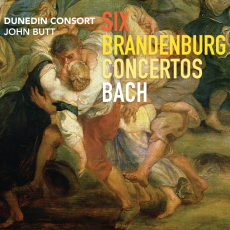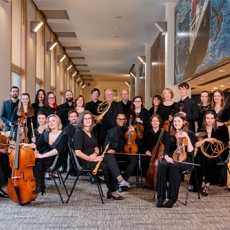Dunedin Consort - J.S. Bach: Six Brandenburg Concertos - The Guardian
John Butt and the Dunedin Consort have already recorded Bach's Matthew and John Passions, as well as Handel's Messiah, and his oratorio Esther for Linn, but this is their first venture into purely instrumental baroque on disc. As always, the performances are underpinned by a wealth of research, though that learning is always worn very lightly. In his sleeve notes, Butt sets out the historical arguments for performing the Brandenburg Concertos at a pitch that's almost a whole tone lower than standard concert pitch today, and for retuning the viols and violone used in the sixth concerto to create richer, more resonant string textures. Certainly, the sixth is one of the revelations in this set; perhaps the least performed of the concertos, it is transformed into a profoundly expressive study in texture and articulation, with the string lines effortlessly and naturally interlaced. But then, the performances of all six concertos are models of perfectly integrated baroque ensemble playing. The Dunedin Consort is clearly a group without stars; even in the second, fourth and fifth concertos, with their more obvious solo roles, there's no sense of instruments being favoured like the soloists in a classical or romantic concerto. The quartet of trumpet, recorder, oboe and violin in the second is obviously distinct from the rest of the orchestra, but audibly part of it, too, just as the dialogue between the pair of recorders and the solo violin in the fourth dovetails perfectly with the strings. Only the harpsichord solo in the first movement of the fifth has a virtuoso flourish to it, and Butt delivers that with great panache. As an example of what modern baroque practice and top-class musicianship can bring to these hugely familiar works, this set is exceptional.

